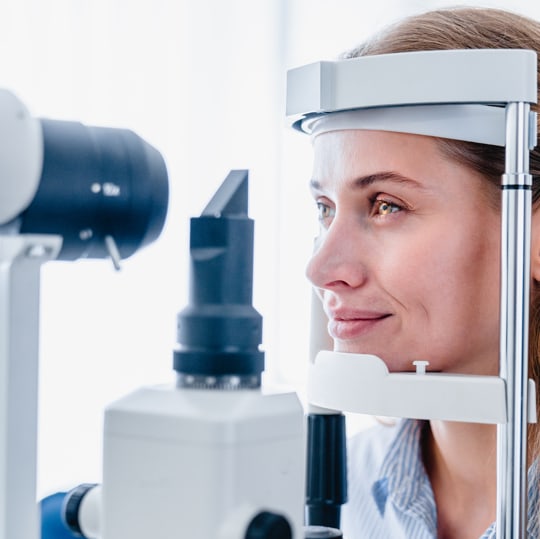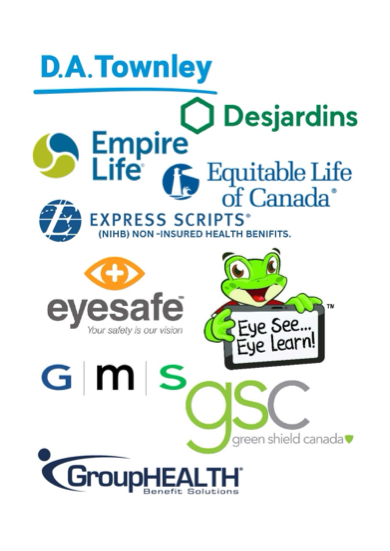Astigmatism is a common eye condition that causes blurred vision. It occurs when the cornea or lens of the eye is irregularly shaped, leading to an uneven focus of light onto the retina. This results in distorted images and difficulty seeing fine details.
While astigmatism can affect people of all ages, it often develops during childhood and can worsen over time. But what exactly causes astigmatism to worsen?
The following are some potential factors that can contribute to the progression of astigmatism:
- Genetics
- Eye trauma or injury
- Certain medical conditions
- Environmental factors
Genetics
One of the main contributing factors for worsening astigmatism is genetics. If one or both parents have astigmatism, their children are more likely to develop the condition. This means that if you have a family history of astigmatism, you are at a higher risk of developing the condition and experiencing its progression.
Eye Trauma or Injury
Physical trauma or injury to the eye can also lead to worsening astigmatism. This is because any damage to the cornea or lens can alter their shape and affect their ability to properly focus light onto the retina. For example, if you suffer a direct hit to the eye or undergo eye surgery, it can cause changes in the curvature of the cornea and lead to an increase in astigmatism.
Certain Medical Conditions
There are certain medical conditions that have been linked to worsening astigmatism. For instance, keratoconus is an eye disorder that causes thinning and bulging of the cornea, resulting in distorted vision. This condition can also contribute to an increase in astigmatism. Additionally, progressive myopia (nearsightedness) or hyperopia (farsightedness) can also cause astigmatism to worsen as they both affect the shape of the eye.

Environmental Factors
Finally, environmental factors can play a role in the progression of astigmatism. For example, prolonged and frequent use of electronic devices such as smartphones, laptops, and tablets can cause eye strain and fatigue, leading to worsening astigmatism symptoms. Excessive exposure to UV rays from the sun or bright lights can also contribute to the development and progression of astigmatism.
Treatment for Worsening Astigmatism
If you notice that your astigmatism is getting worse, it is important to consult an eye doctor for proper diagnosis and treatment. The most common treatment options include:
- Glasses or contact lenses: These can help correct the refractive error and improve visual acuity. They are typically prescribed for mild to moderate cases of astigmatism.
- Orthokeratology (ortho-k): This involves wearing special gas-permeable contact lenses overnight to temporarily reshape the cornea and correct vision. It is often used for myopia control but may be recommended for those with mild to moderate astigmatism.
- Refractive surgery: In more severe cases of astigmatism, refractive surgery may be recommended to permanently reshape the cornea and correct vision. This includes procedures such as LASIK, PRK, or LASEK.
- Toric intraocular lenses (IOLs): For those with cataracts and astigmatism, toric IOLs can be surgically implanted to correct both conditions at once.
Tips for Managing Worsening Astigmatism
In addition to seeking treatment, there are some steps you can take to manage worsening astigmatism and improve your overall eye health. These include:
- Taking breaks from electronic devices: To reduce eye strain and prevent the worsening of astigmatism symptoms, make sure to take regular breaks from using electronic devices.
- Protecting your eyes from UV rays: Wear sunglasses with UV protection when outdoors to prevent excessive exposure to harmful UV rays.
- Using proper lighting: Avoid bright lights and make sure your workspace is well-lit to reduce eye strain.
- Getting regular eye exams: Regular checkups with an eye doctor can help monitor the progression of astigmatism and ensure that you can access appropriate treatment.
- Wearing proper eyewear: Make sure to wear glasses or contact lenses as prescribed by your eye doctor to correct your astigmatism and prevent it from worsening.
- Managing underlying health conditions: Some conditions can contribute to worsening of astigmatism. Make sure to manage any underlying health issues that may be affecting your eyesight.
- Eating a healthy diet: Consuming foods rich in vitamins and antioxidants can help maintain overall eye health and potentially slow down the progression of astigmatism.
- Avoid rubbing your eyes: Rubbing your eyes excessively can cause irritation and potentially worsen your astigmatism symptoms.
- Practising good hygiene: Make sure to wash your hands regularly, especially before handling contact lenses, to prevent potential eye infections.
- Using artificial tears: If you experience dry eyes, using artificial tears can help alleviate discomfort and improve your vision.
In addition to these steps, it is important to stay aware of any changes in your vision and report them to your eye doctor as soon as possible.
Prioritising Eye Health at Eyesis Eyecare Center
Understanding what causes astigmatism to worsen is pivotal for managing the condition effectively. By adopting preventive measures like protecting your eyes from harmful UV rays, wearing the correct eyewear, maintaining a healthy diet, and managing underlying health conditions, you can significantly mitigate the progression of astigmatism.
Maintaining regular communication with your optometrist and adhering to their recommendations is crucial for the health and longevity of your vision. Being proactive about your eye health can lead to better visual outcomes and a higher quality of life.
At Eyesis Eyecare, we are committed to providing comprehensive eye care to our patients and educating them on the importance of proper eye health. Schedule an appointment with us today and take the first step toward maintaining a clear, healthy vision.






































